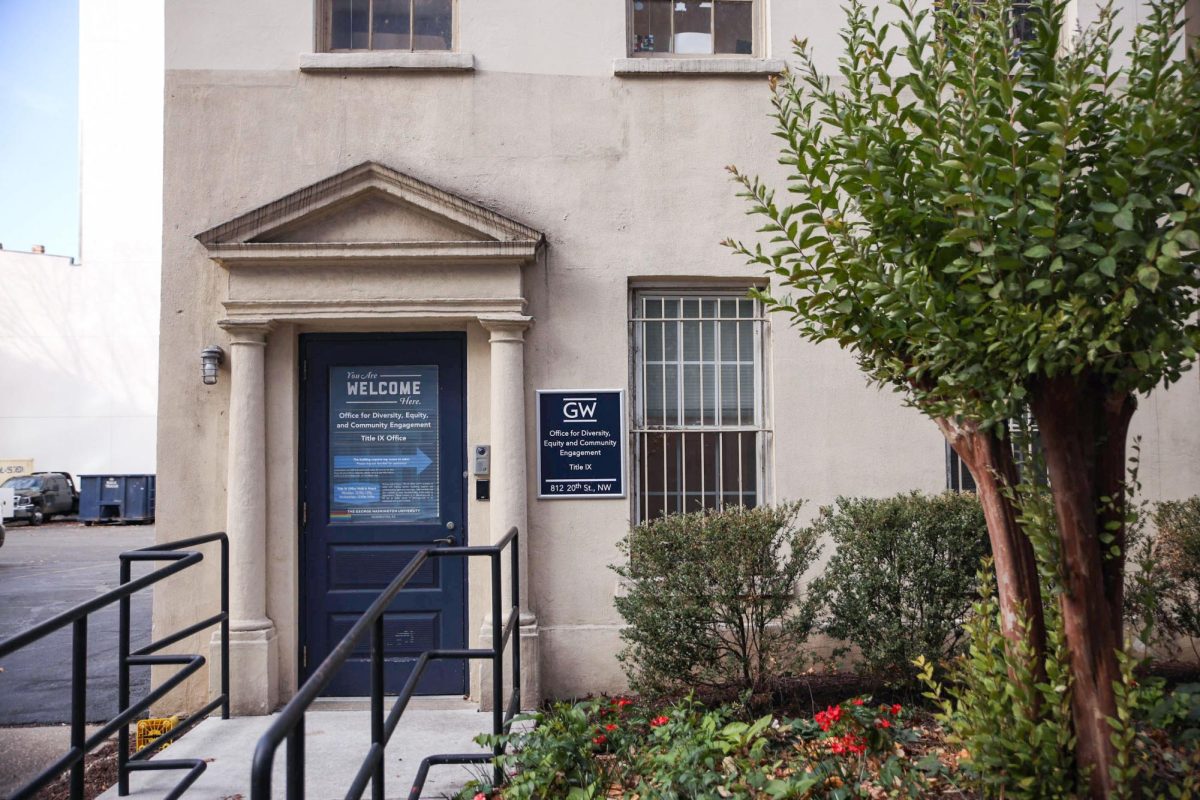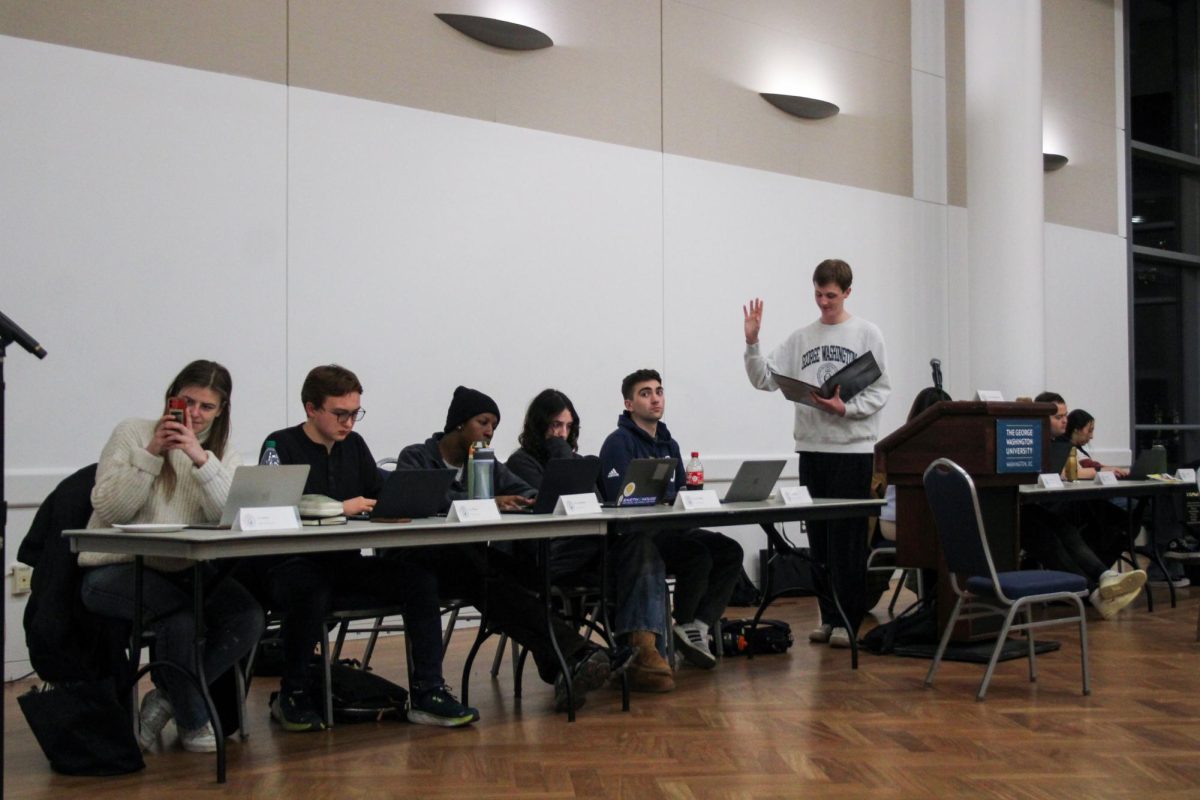The Student Association’s head signed an executive order Sunday calling on the SA Senate to approve a committee charged with addressing anti-Semitism on campus.
SA President SJ Matthews filed an executive order Sunday in the wake of an anti-Semitic Snapchat video that emerged two weeks ago that creates a “Task Force On Combating Anti-Semitism,” a 10-student committee charged with proposing “institutional changes” to eradicate anti-Semitism at GW. Matthews said she intends for the task force to spark a dialogue on campus about anti-Semitism and solutions to the issue.
“It’s a really important topic,” she said. “Anti-Semitism is an issue on our campus – it’s an issue that I don’t think is being talked about enough – and so this executive order is going to mandate we have this task force and this conversation and talk about how anti-Semitism is happening across our campus and the best ways to combat that.”
The task force is also responsible for encouraging dialogue about anti-Semitic acts on campus and working with officials to incorporate anti-Semitism awareness into diversity trainings for new students, according to the order.
“Currently, it’s not something that’s talked about when we’re doing those diversity trainings, and I think interfaith dialogue is a huge thing on our campus, so I think we need to do a better job of creating spaces where people can have conversations and learn about other faiths and beliefs,” Matthews said.
The task force is the second committee Matthews has called for in an executive order this semester. She filed an order in September to create the Colonial Moniker Task Force, which the senate codified last month to research possible sobriquets to replace the University’s Colonials nickname.
Julia Kerrigan, the director of interfaith engagement, will chair the committee, which includes Hannah Edwards, the vice president for diversity and inclusion, and Zachary Nosanchuk, the vice president for undergraduate student policy and a former Hatchet opinions writer, the order states.
The SA Senate can also nominate up to three senators and Matthews can appoint four members of the public, including one representative from the residential engagement team, to serve on the committee, according to the order.
The committee is intended to be proactive and to eliminate future instances of anti-Semitism on campus, which are more ubiquitous than the few instances that go viral, Matthews said.
“I think it was interesting because after the Snapchat broke, I had a lot of students saying to me, ‘Oh, I hear this stuff all the time, and that was really hard to hear,'” she said. “We have Jews on our campus who are facing discrimination every day, and again, they don’t talk about it unless there’s a Snapchat or unless it’s a huge thing.”







